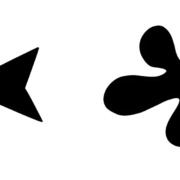Qualitative and Quantitative Research Studies… What’s the Difference?

Market research studies come in every form imaginable, and vary dramatically by size and scope. It is so important for businesses to select the right type of research study to produce actionable insights and effectively inform.
An expert research vendor – like Ideba – will possess skills required to execute both qualitative studies (used to uncover trends in thought and opinions) and quantitative studies (used to quantify attitudes, opinions, behaviors and other defined variables). And, an expert research vendor will guide clients in constructing a study that gets to the heart of what their company needs to know.
Both kinds of research, qualitative and quantitative, have a respective place in information gathering and I have listed below some of the most important factors to consider when determining which kind of study is best; respecting some studies contain both qualitative and quantitative questions.
- Purpose: as mentioned earlier, qualitative studies help determine trends and dynamics around an experience or industry which may not already be known by the company. Leveraging this methodology is ideal to inform research and development, or help identify strengths/weaknesses in service performance. It is ideal for marketing or for operational improvement. A quantitative study is best for monitoring known KPIs over time such as customer satisfaction, timeliness of service, and issue resolution.
- Number of participants: the more candidates participating, the more likely a researcher will want to take a quantitative approach. With 10 to 15 participants, a researcher wants to spend time hearing qualitative feedback, pulling thoughts and ideas out of each participant. With 10,000 to 15,000 participants, that methodology becomes impossible and a researcher wants to be able to easily count, slice and dice feedback with agility provided via quantitative questions.
- Timing: participants range in how much time they have to spare. For those with a lot of time, a qualitative study provides a better outlet for covering all talking points. A quantitative study can be much shorter and require less time to complete and submit.
- Cost: the price of studies will always fluctuate based on key criteria. A repeatable study will always yield the most benefit long-term and will cost less because the researcher won’t be reinventing the wheel for each new round of surveys. Same survey guide / repeatable process.
Quantitative studies require less time to collect feedback and analyze than qualitative studies do – especially if leveraging online tools like SurveyMonkey – and serve as a frugal way to keep a finger on the pulse of business over time whether as a follow up to a qualitative study to verify and track results, or as a monthly/quarterly program to stay on top of an ever-changing business environment.
There are obviously a lot of factors to consider when constructing a perfect research study. We are happy to field any questions you may have about this practice and how it can help your business. Please reach out any time on email, or via LinkedIn and Twitter.
– Lee Sumner, Sr. Research Manager







